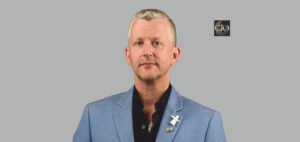In a world constantly evolving through technology and innovation, few individuals have committed themselves as unwaveringly to the cause of education, research, and intellectual growth as Dr. Richard Larson. A professor, researcher, mentor, and thought leader, Larson’s journey spans over five decades of pioneering contributions that have left a significant imprint on operations research, education reform, and model-based decision-making. His life’s work is not just measured in academic achievements but in the many lives he has influenced through his passion for learning and dedication to the betterment of society.
Dr. Larson’s story is rooted in a deep belief in lifelong learning—an idea that transcends classrooms, degrees, or age. From his early academic days at MIT to his global initiatives in education and his thought-provoking book on MODEL-Based Thinking, Larson’s trajectory illustrates how intellectual curiosity can become a transformative force. His late wife, Mary Elizabeth Murray (“Liz”), was a cornerstone of his personal and professional life, and together they forged a path that prioritized educational access and innovation.
Even in retirement, Dr. Larson continues to share his knowledge through writing, speaking, and consulting, demonstrating that learning is not a phase but a lifelong pursuit. His legacy is a living one—carried forward by his students, institutions, and the generations he continues to inspire.
Academic Journey and MIT Foundations
Dr. Richard Larson credits the trajectory of his career to a pivotal start at the Massachusetts Institute of Technology (MIT), where he was admitted as a freshman shortly after graduating from Needham High School. His father had initially hoped he would commute to reduce costs, but joining the Phi Beta Epsilon fraternity changed the course of his experience. Unlike other fraternities situated across the Charles River, PBE was located right on campus at Memorial Drive. This close-knit community became integral to his academic growth and personal development.
Larson pursued his graduate studies at MIT with intense curiosity, eventually earning a PhD in Operations Research. When his dissertation neared completion, his advisor, Professor Alvin W. Drake, unexpectedly extended an offer for him to stay on as an Assistant Professor. Initially doubtful about stepping into a faculty role so soon—an experience he jokingly compares to the “Groucho Marx syndrome”—Larson ultimately accepted the challenge.
His decision to remain at MIT proved transformative. Rising through the ranks to become a tenured professor, he immersed himself in both research and mentorship. His time at MIT was not just a job—it became a lifelong intellectual home that fueled his innovative ideas and solidified his commitment to education.
Teaching: The Heart of His Fulfillment
While Dr. Larson has authored numerous research papers and played a key role in shaping multiple academic disciplines, it is teaching and mentoring that brought him the greatest fulfillment. “While lecturing was fulfilling,” he once noted, “it was the deeper academic relationships formed through advising and supervising graduate students that I cherished the most.” These relationships created a dynamic environment of innovation, collaboration, and creativity.
He viewed teaching as more than the transmission of information. It was, for him, about instilling critical thinking, encouraging curiosity, and nurturing the spirit of inquiry. His approach to mentorship went beyond academic goals, empowering students to see themselves as capable contributors to their fields. Witnessing them evolve into industry leaders, innovators, and educators in their own right became the most rewarding outcome of his work.
Shaping Tomorrow’s Innovators
Even after stepping back from active classroom teaching, Dr. Larson’s dedication to the spread of knowledge has never waned. Today, he focuses on making complex academic ideas accessible to the public, especially through his recent book, MODEL THINKING For Everyday Life. This work emphasizes his lifelong belief that people can improve their lives by thinking in terms of models—abstract representations that clarify complex decisions and systems.
His mission now centers on empowering individuals to use structured thinking tools to navigate uncertainty and solve everyday problems. By removing barriers to understanding, he aims to foster a more thoughtful and well-informed society. His belief in democratizing knowledge stands as a continuation of his earlier work, extending the reach of education beyond university halls and into everyday life.
A Commitment to Lifelong Learning
At the core of Richard Larson’s philosophy is a reverence for the act of learning itself. Quoting Einstein, he often says, “A day without learning is a day wasted.” He sees learning as something that can happen anywhere—from reading a complex research paper to observing the behavior of pets at home. Learning, for him, is a constant, not a compartmentalized phase of life.
Remarkably, some of his most profound breakthroughs emerged through unexpected moments—such as dreams. On at least two occasions, he solved complex research problems in his sleep. One of these led to the development of the Hypercube Queueing Model, which significantly improved urban emergency service deployments. These episodes only deepened his belief that the mind, when trained and curious, continues to explore and resolve problems unconsciously.
Impact Beyond the MIT Campus
While his influence is deeply felt at MIT, Dr. Larson’s contributions extend far beyond. One notable example is his involvement with Notre Dame Cristo Rey High School, an institution dedicated to providing quality education to underserved communities. His support reflects his belief that access to education should not be limited by socioeconomic status or geography.
His legacy at MIT includes the establishment of the Larson Chair in Data, Systems, and Society—an endowed faculty position aimed at supporting future research and innovation. Through this contribution, he ensures that young scholars have the institutional support necessary to pursue groundbreaking work. His efforts stand as a testament to his belief in education’s power to shape lives and societies.
Lessons from Humbling Moments
No journey is without setbacks, and Dr. Larson’s path included moments of discomfort that became turning points. As a young Teaching Assistant, he was once unable to explain an equation in front of a large class—an experience that deeply humbled him. From that moment onward, he resolved to prepare meticulously for every class, mastering his material so that he could respond confidently to students’ questions.
This incident marked a turning point in his approach to teaching and underscored his commitment to excellence. Rather than let the embarrassment deter him, he transformed it into a lifelong discipline of preparation, rigor, and empathy for students navigating difficult material.
Balancing Professional and Personal Life
Behind every great academic is often an equally extraordinary partner, and for Richard Larson, that person was Mary Elizabeth Murray (“Liz”). Their 43-year marriage was built on mutual respect, shared goals, and a deep commitment to educational causes. Liz played a central role in his professional life, especially through her leadership in the MIT BLOSSOMS program, which aimed to expand access to high-quality learning resources globally.
Together, they traveled to present their work at conferences and institutions around the world. One unforgettable moment occurred in Saudi Arabia, where Liz addressed hundreds of educators and administrators with conviction and grace. Her involvement in both BLOSSOMS and Dr. Larson’s consulting work made their professional partnership as rich as their personal one. Her passing left a profound impact on him, but her legacy continues to live through their shared accomplishments.
Adapting to the Changing Educational Landscape
As education evolves in the digital age, Dr. Larson remains an astute observer of emerging trends. Of particular interest to him is the rapid integration of Artificial Intelligence (AI) into learning environments. While he acknowledges the transformative potential of AI, he is also concerned about its implications for student engagement and academic integrity.
He worries that AI-generated content could replace genuine intellectual effort and hopes that educators will address these challenges thoughtfully. Yet, he remains optimistic. To him, critical thinking and ethical reasoning will remain irreplaceable, regardless of how advanced machines become. Human curiosity and judgment, he believes, are the true drivers of meaningful progress.
Guidance for Aspiring Researchers and Educators
Dr. Larson offers timeless advice for the next generation: “Follow your learning passions.” He encourages students and young researchers to embrace curiosity, take intellectual risks, and remain open to interdisciplinary exploration. Some of his most impactful contributions, such as the Queue Inference Engine and the Hypercube Queueing Model, emerged from such an exploratory mindset.
He believes that transformative ideas often originate not from traditional paths but from confronting real-world challenges with fresh perspectives. By staying grounded in inquiry and driven by a desire to contribute, aspiring researchers can make lasting impacts on their fields and the world.
Continuing the Mission: Educate, Inspire, Empower
Although he is no longer conducting primary research, Dr. Larson remains active in his mission to empower people through knowledge. Through his book, media appearances, and speaking engagements, he continues to reach audiences far beyond academia. A highlight of this new chapter in his life was seeing his work featured on a 20-story digital billboard in Times Square—an unexpected but fitting symbol of his reach and influence.
His goal remains the same: to encourage critical thinking, model-based analysis, and lifelong learning in people of all ages. For Dr. Larson, education is not just a profession; it is a calling—a way to equip society with the tools it needs to solve its most pressing challenges.
A Legacy of Learning and Leadership
Dr. Richard Larson’s journey is one of passion, perseverance, and profound purpose. From his formative years at MIT to his ongoing efforts to democratize knowledge, he has never stopped learning—or teaching others how to learn. His work spans the worlds of theoretical research and public education, academic rigor and accessible wisdom.
Above all, Dr. Larson’s story is a powerful reminder that the pursuit of knowledge is not confined to the young or the academic elite. It is a lifelong endeavor, enriched by curiosity, shaped by experience, and driven by a desire to make the world a better place. Through his writings, teachings, and legacy, Richard Larson continues to light the path for learners, thinkers, and educators around the world.
Read More : The Most Inspiring Education Leaders Making a Difference in Lexington




